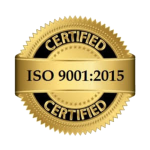
6 Advantages of E-Business Suite on Oracle Cloud
Enterprise production applications—such as record, finance, and orchestration systems—lay the groundwork for a profitable venture. To be more specific, the Oracle E-Business Suite (EBS), PeopleSoft, JD Edwards, Siebel, etc. all have a phenomenal track record of supporting businesses on-premises, irrespective of the volume of transactions they host every day. However, running Oracle EBS on the Oracle cloud with real application cluster (RAC)/Exadata is now where the action is, apparently.
Therefore, let us explore the benefits of deploying production applications such as PeopleSoft, or the Oracle E-Business Suite on Oracle Cloud Infrastructure (OCI).
Related Reading:
1. Out of the box Business Transformation and Return on Investment
For all the obvious reasons, migration of mission-critical production applications to OCI can be challenging. However, the immediate return on investment in the form of boosted performance, agility, scalability, productivity, security, and cost containment simply outweighs the one-time complexities. In place of the upfront investment also, enterprises only pay what they use on a monthly basis.
Note: With Infolob’s Migration Services, say goodbye to even the one-time complexities.

2. Sustained Competitive Advantage
While it is always practical to go cloud-native, many businesses today are competitive despite running Oracle applications on-premises. However, the question is – for how long? By choosing to run Oracle E-Business Suite on the Oracle cloud, alongside the advanced, cloud-native technologies such as the microservices architecture, Oracle Functions, Kubernetes, Docker containers, etc., modern businesses can guarantee themselves a sustained competitive advantage.
3. Fast-tracked Innovation, 24x7
Deploying Oracle E-Business Suite on the Oracle cloud means leaner development cycles, iterative functional delivery, and orchestrated continuous integration and deployment (CI/CD) pipeline fostering innovation for customers significantly quicker, and at scale.
It is simply because Oracle cloud runs on the cutting-edge, best-of-breed instances, networking, memory, and storage systems, on top of the technologies like Oracle Sharding, Oracle RAC, etc., that offer enterprises the raw performance required to ensure a non-stop innovation circuit.
4. Agility of the Modern, Componentized, Microservices
Many businesses run on a variety of applications, including the custom and monolithic architecture-based ones that are somewhat opposite to the idea of the modern, cloud-native, microservices architecture of the Oracle cloud. For those enterprises, a multi-cloud environment—a combination of on-premises Exadata and OCI—is recommended. However, for moving the Oracle E-Business Suite to the Oracle cloud, customers need not get into any hassle.
5. More Automation with Oracle E-Business Suite Cloud Manager
The Oracle Cloud Infrastructure has injected automation across all its cloud-native products and services that complements the Oracle E-Business Suite, along with all other applications.
Oracle Cloud Native services: For instance, the Oracle Cloud Native services modernize E-Business Suite by introducing a digital assistant for a variety of business-critical tasks, including the automation of customer interactions, enforcement of a disaster recovery (DR) plan, or perhaps leveling-up the enterprise supply chain systems.
Oracle E-Business Suite Cloud Manager: A browser-based app for driving principal automation flows, such as the provisioning of new environments, streamlining lifecycle activities, and reinstating environments from the on-premises infrastructure to the Oracle cloud. Moreover, it simplifies the day-to-day administrative tasks on the Oracle E-Business Suite.
Oracle Management Cloud: It is for monitoring and governing the Oracle cloud environment while also reducing 50% of the expenses against the on-premises data center, all via automation and infrastructure capabilities of the OCI.
Therefore, the Oracle cloud not only offers a streamlined deployment, migration, maintenance, and upgrading of the E-Business Suite, but also reduces time, risk, cost, and commitment required by most cloud service providers.
6. More Security for Oracle E-Business Suite
The Oracle cloud is designed to offer E-Business Suite a highly available, and redundant infrastructure, coupled with:
- Always-on encryption
- Zero-trust design
- Cross-tenant threat containment
- Malware-proof hardware
- Customer isolation
- Maximum security zones
- Comprehensive log data
- User-friendly IAM policies
- Identity federation, etc.
for keeping data safe every step of the way.
Therefore, in short, Oracle Cloud Infrastructure can offer enterprises the architectural patterns for addressing all the availability, networking, performance, disaster recovery, and multiregional needs, on top of modernizing their business applications with the least downtime.




